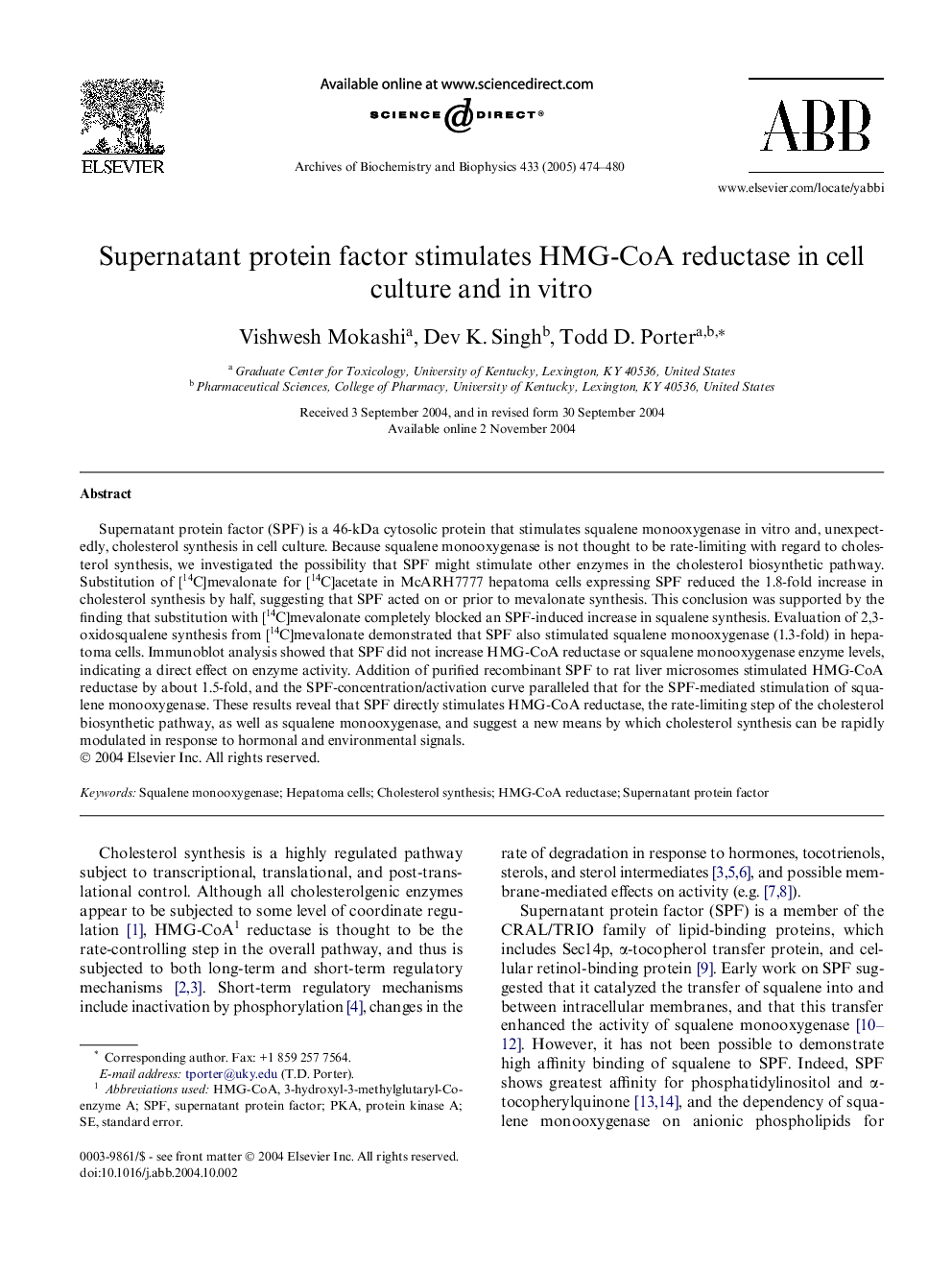| Article ID | Journal | Published Year | Pages | File Type |
|---|---|---|---|---|
| 9882385 | Archives of Biochemistry and Biophysics | 2005 | 7 Pages |
Abstract
Supernatant protein factor (SPF) is a 46-kDa cytosolic protein that stimulates squalene monooxygenase in vitro and, unexpectedly, cholesterol synthesis in cell culture. Because squalene monooxygenase is not thought to be rate-limiting with regard to cholesterol synthesis, we investigated the possibility that SPF might stimulate other enzymes in the cholesterol biosynthetic pathway. Substitution of [14C]mevalonate for [14C]acetate in McARH7777 hepatoma cells expressing SPF reduced the 1.8-fold increase in cholesterol synthesis by half, suggesting that SPF acted on or prior to mevalonate synthesis. This conclusion was supported by the finding that substitution with [14C]mevalonate completely blocked an SPF-induced increase in squalene synthesis. Evaluation of 2,3-oxidosqualene synthesis from [14C]mevalonate demonstrated that SPF also stimulated squalene monooxygenase (1.3-fold) in hepatoma cells. Immunoblot analysis showed that SPF did not increase HMG-CoA reductase or squalene monooxygenase enzyme levels, indicating a direct effect on enzyme activity. Addition of purified recombinant SPF to rat liver microsomes stimulated HMG-CoA reductase by about 1.5-fold, and the SPF-concentration/activation curve paralleled that for the SPF-mediated stimulation of squalene monooxygenase. These results reveal that SPF directly stimulates HMG-CoA reductase, the rate-limiting step of the cholesterol biosynthetic pathway, as well as squalene monooxygenase, and suggest a new means by which cholesterol synthesis can be rapidly modulated in response to hormonal and environmental signals.
Related Topics
Life Sciences
Biochemistry, Genetics and Molecular Biology
Biochemistry
Authors
Vishwesh Mokashi, Dev K. Singh, Todd D. Porter,
